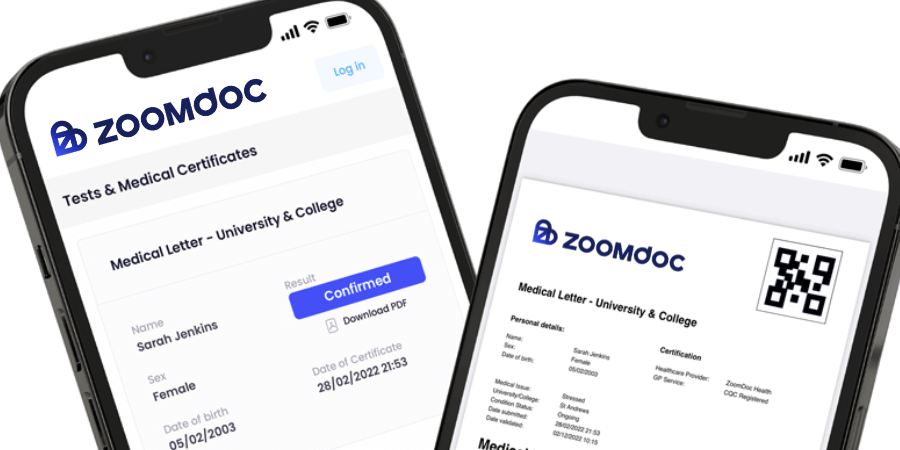A student in Wales is warning others to know the signs, symptoms and dangers of meningitis after ending up in hospital with what he thought was ‘freshers’ flu’. After spending weeks unwell before being admitted to hospital, Swansea University student Levi Lawrence wants others to be aware of this potentially fatal disease.
Health experts are also urging students to make sure they’re up to date with their vaccinations, after recent data shows as many as half a million young people are starting university not protected against meningitis, or other diseases.
From reducing your risk of catching it to knowing when to get help, here’s what everyone needs to know about meningitis.
What exactly is meningitis?

Meningitis is most common in babies, young children, teenagers and young adults. It is very serious if not treated quickly.
‘Meningitis is an infection of the membranes that surround and protect the brain and spinal cord (meninges),’ says ZoomDoc GP Dr Jenny Ellenbogen.
‘It can be spread by a bacteria or virus, often through sneezing, coughing or kissing,’ she adds.
According to NHS advice, symptoms include:
- a high temperature (fever)
- being sick
- a headache
- a stiff neck
- a dislike of bright lights
- drowsiness or unresponsiveness
- seizures (fits)
- a non-blanching rash (ie. does not fade when a glass is rolled over it)
‘Meningitis is perhaps “known” for the rash that doesn’t fade when you hold a glass against it. However, it doesn’t always appear as a tell-tale symptom and, if it does, can sometimes mean the patient is already very poorly,’ says Dr Jenny.
If you suspect your symptoms or someone else’s could be meningitis, call 111 for urgent advice, or call 999 or go straight to A&E if they are particularly unwell. Do not wait for the rash.
Meningitis is treatable with antibiotics but it can escalate quickly. Tests at hospital will be able to determine whether it’s bacterial or viral and treat it accordingly.
Why does meningitis affect students?

College students, especially those living in residence halls, are prone to contracting the disease because of their close proximity to each other.
NHS advice suggests ‘older teenagers and new university students are at higher risk of infection because many of them mix closely with lots of new people, some of whom may unknowingly carry the meningococcal bacteria at the back of their nose and throat.’
It can affect anyone but is more common in babies, children, teens and young adults (students).
Read more about keeping students healthy and safe.
Is there a vaccine?
There are several vaccinations that offer protection against different strains of meningitis.
These are available via your routine childhood immunisations from the age of 8-weeks-old, right up to school age.
Students are offered a specific vaccine protecting against 4 strains of the meningococcal bacteria – A, C, W and Y – which cause meningitis and blood poisoning (septicaemia).
However, latest data shows the vaccination rate of the teenage MenACWY vaccine has fallen. This means that a large number of students (1 in 8) are starting college or university with an increased risk of meningitis and septicaemia. This number will rise to around 1 in 5 pupils being unprotected in a few years’ time, if they don’t catch up with their vaccinations.
A new government campaign called ‘Tackle Meningitis’ is urging people to check their vaccine status and to ‘take advantage of the MenACWY vaccination when it is offered.’
Any child born on or after 1 September 1996 who was eligible but missed their teenage MenACWY vaccine can still have the vaccine up to their 25th birthday. Contact your GP practice to arrange it.
Make sure your child is up to date with their vaccinations.
Need a university sickness note?

Same-day university, college and school sickness letter, required to confirm sickness or a health condition and its impact on your studies.
If your child falls ill – whether with meningitis or something else – and needs time off school, college or university, ZoomDoc offers a stress-free ‘sick note’ service.
Simply select ‘university & college sickness’ from our medical letters service and for just £40 we’ll supply a medical letter the same day, without having to make an in-person GP appointment.

